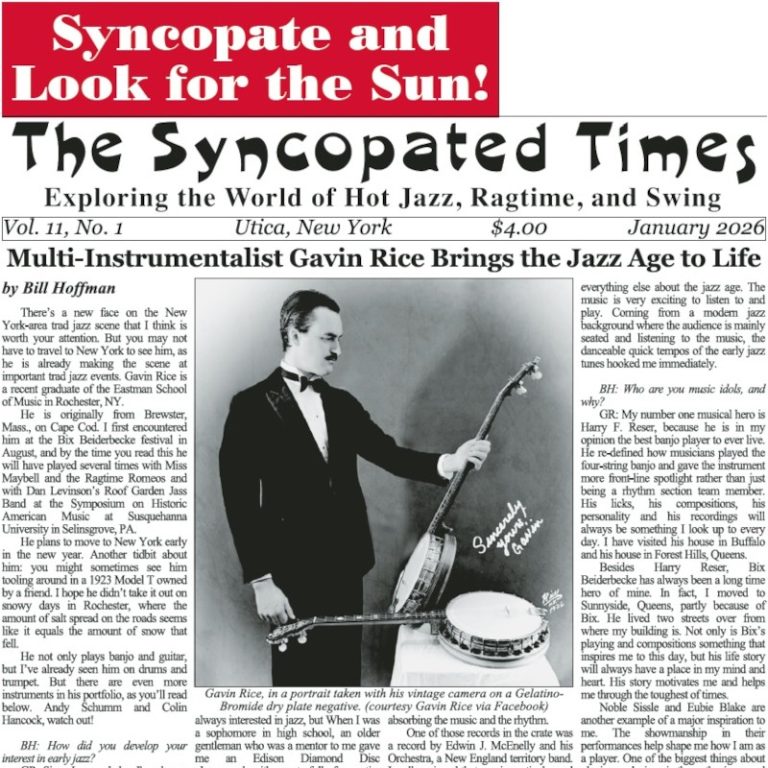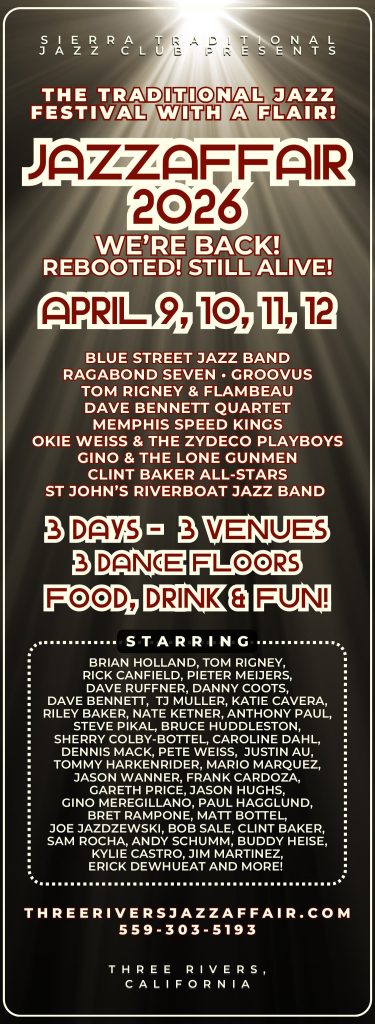COMES LOVE by Eli and the Chocolate Factory Featuring Tamar KornIn America, the name Eli is typically pronounced (E-lie), in much of the rest of the world it is pronounced (el-E). When articulated properly the name of the Israeli traditional jazz band Eli and the Chocolate Factory will rhyme with good old Chuck.
I first heard about the band last fall when Marek Boym wrote about his experience as the only attendee at one of their shows who preferred a chair by the bar to dancing all night.
Marek was born in what is now Ukraine, the city was in Poland until the war. During the war he was dislocated to central Poland and he considers himself Polish. He discovered jazz around 1953 and his growing love for it was solidified by a 1955 Acker Bilk concert behind the Iron Curtain. He has now lived in Israel for decades. He used to contribute stories to The Mississippi Rag and still gets to festivals in Europe. He's one of the elder statesmen in a vibrant cross-generational scene.
Another is Frank Farbenbloom who handed me this album when we met for lunch in May. Frank wrote about his Jazz Fest at Sea experience for our March issue and writes about an Eyal Vilner Big Band concert in Israel for this issue. He spends part of his year there and part in Florida, he is originally from Ireland and has stories to tell about dealing antiques in New Orleans and the early days of Preservation Ha
You've read three articles this month! That makes you one of a rare breed, the true jazz fan!
The Syncopated Times is a monthly publication covering traditional jazz, ragtime and swing. We have the best historic content anywhere, and are the only American publication covering artists and bands currently playing Hot Jazz, Vintage Swing, or Ragtime. Our writers are legends themselves, paid to bring you the best coverage possible. Advertising will never be enough to keep these stories coming, we need your SUBSCRIPTION. Get unlimited access for $30 a year or $50 for two.
Not ready to pay for jazz yet? Register a Free Account for two weeks of unlimited access without nags or pop ups.
Already Registered? Log In
If you shouldn't be seeing this because you already logged in try refreshing the page.




